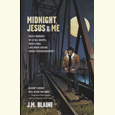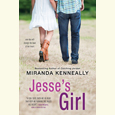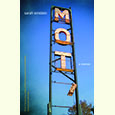A Good Nose
Jay McInerney’s Wine Reads gathers a fine cellar of literary pleasures
In Wine Reads: A Literary Anthology of Wine Writing, the bestselling novelist Jay McInerney collects twenty-seven pieces of writing connected in one way or another to a drink that has been with him throughout his career. Although the book has been remembered mostly for its copious cocaine, Bright Lights, Big City—the 1984 novel which made McInerney, at the age of twenty-four, an instant literary celebrity—includes a scene featuring wine just a few pages in. After a night of debauchery, the second-person narrator stumbles around Greenwich Village, staring wistfully at his former neighborhood, thinking of lost love. “You were just starting out,” he recalls. “You had the rent covered, your favorite restaurant on MacDougal where the waitresses knew your names and you could bring your own bottle of wine.”

Good food and wine continue to appear many times in that novel and in all of the novels that followed, not to mention in McInerney’s articles on wine for New York Magazine, Vanity Fair, and The New Yorker; and his columns for Town & Country, The Wall Street Journal, and other publications. Much of his own nonfiction on wine has been collected in three previous books, but in Wine Reads McInerney selects his favorite short pieces created by other writers old and new, in fiction and nonfiction. (Well, almost all of them are by other writers, anyway: late in the book he includes his own “Billionaire Winos,” a hilarious and aptly-titled piece originally published in Men’s Vogue, a small self-indulgence that fits in deliciously with surrounding fare.)
Among the many contributors—all of whom display a love affair with Bacchus of one sort or another—are Roald Dahl, Jim Harrison, Auberon Waugh, Rex Pickett, Bill Buford, and Julia Flynn Siler. They all write not only with passion but with wit and subtlety. Probably the most familiar piece to the casual wine reader is an excerpt from Pickett’s Sideways, which became the basis of the popular 2004 film of the same name, but, as with the drink itself, it is the overlooked and unfamiliar vintage that gives depth to the collection.
Dahl’s short story “Taste,” originally published in Ladies’ Home Journal in 1945, is served first. In it a grotesque gourmand demonstrates an uncanny ability to identify any the contents of any glass:
The point of the nose entered the glass and moved over the surface of the wine, delicately sniffing. He swirled the wine gently around in the glass to receive the bouquet. His concentration was intense. He had closed his eyes, and now the whole top half of his body, the head and neck and chest, seemed to become a kind of huge sensitive smelling machine, receiving filtering, analyzing the message from the sniffing nose.
Dahl being Dahl, this villain—for that is what he is soon revealed to be—uses his skill to place an unsuspecting family at great risk.
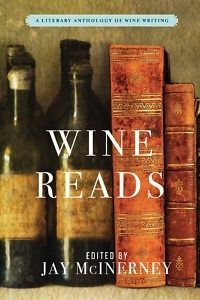 In the collection’s second piece, journalist George Taber records the historic moment in 1976 when a group of upstart California wines beat out their French counterparts in a blind tasting in Paris, organized by Steven Spurrier and conducted by experienced French judges. “Spurrier looked at the judges,” Taber writes, “whose reaction ranged from shock to horror. No one had expected this, and soon the whole room was abuzz.”
In the collection’s second piece, journalist George Taber records the historic moment in 1976 when a group of upstart California wines beat out their French counterparts in a blind tasting in Paris, organized by Steven Spurrier and conducted by experienced French judges. “Spurrier looked at the judges,” Taber writes, “whose reaction ranged from shock to horror. No one had expected this, and soon the whole room was abuzz.”
In a shift that becomes as routine as white to red or claret to port, McInerney—a former Nashville resident—artfully arranges personal essays, travel pieces, novel excerpts, and shorts stories in a tasting order that both surprises and pleases. Each selection offers a pleasurable read and a unique voice. The book never feels the least bit didactic or obscure, and the reader needs no special knowledge of wine to enjoy it. As its subtitle promises, the anthology is “literary” in the best sense. Through the process of enjoying its literary offerings, the wine novice also learns a great deal about the drink, and the expert may be introduced to new perspectives and forgotten histories.
“The simple act of opening a bottle of wine has brought more happiness to the human race than all of the governments in the history of the earth,” Jim Harrison enthuses in his essay, “Wine.” “Even organized religions are mere spiritual mousetraps compared to the pop of the cork, the delicious squeak when you loosen it from the firm grip of the corkscrew.”
Reading McInerney’s fine collection is like that. A few lines later, when Harrison declares, “Taste is a mystery that finds its voice in wine,” this reader had to get up and have a taste himself.
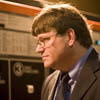
Michael Ray Taylor chairs the communication and theatre arts department at Henderson State University in Arkadelphia, Arkansas. He is currently writing a book about southern caves and cavers.
